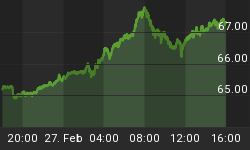Today's flash GDP estimate for Q3 officially confirmed that Singapore has entered a recession - its first since 2002. The economy shrank at an annualized 6.3% in Q3 (subject to revision), and in the previous quarter contracted at a 5.7% annualized pace, thus meeting the commonly accepted recession definition of two consecutive quarters of negative economic growth. Year over year, Singaporean GDP grew by 2.3% in Q2, but shrank in Q3 by 0.5% (see chart below). The details were not too surprising, with services and construction upholding normal growth rates, but manufacturing contracting again, this time by 11.5% yoy. As Singapore specializes in higher-end manufactured goods (i.e., electronics and medical equipment), it is no surprise that at present, the economically-challenged developed world is demanding fewer of Singapore's manufactures.
Chart 1
Today we also saw Singapore's benchmark Straits Times Index slump 7.3% to its lowest level since November 2004. Moreover, Singapore's Business Expectations Index from the manufacturing sector has dropped for the second quarter in a row (-10% in Q1 and -3% in Q2). Advanced one quarter, this survey has a very high correlation with real GDP growth.
Chart 2
All said, things are looking gloomy for this Asian harbinger. In response, Singapore's central bank loosened monetary policy for the first time in five years to support its stumbling economy. It does this by managing the Singapore dollar within a secret trade-weighted band against an undisclosed basket of currencies. Thus, the central bank's stance was shifted to a "zero appreciation" bias from "gradual appreciation" in hopes that a weaker currency may prop up Singapore's vital export sector - good move for a country whose non-oil domestic exports (equal to approximately 75% of GDP) have fallen on an annual basis for the last four months.
Chart 3
As a small, open economy, Singapore may face an extended, fairly deep recession, and its heavy trade-dependence among its Asian peers points to weakness on the Pacific Rim. In the second quarter, New Zealand slipped into recession for the first time in more than a decade, and Japan is all but officially in recession. Australia is now seeing cracks in its financial system, and political and economic turmoil has become the norm in Southeast Asia. With global financial and credit markets in complete disarray, maybe a better list to make would be who isn't on the verge of crisis.















